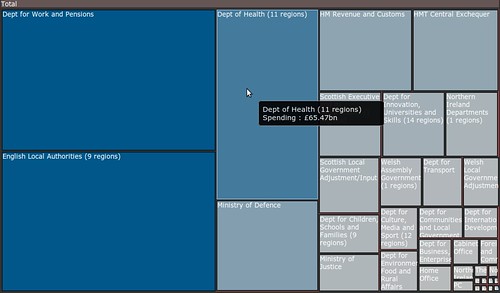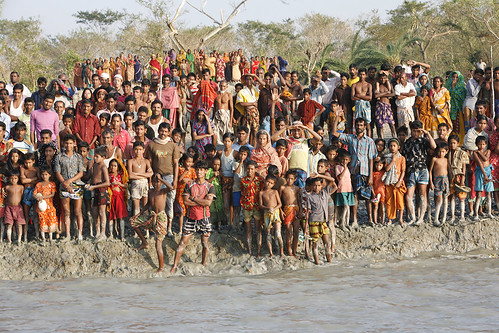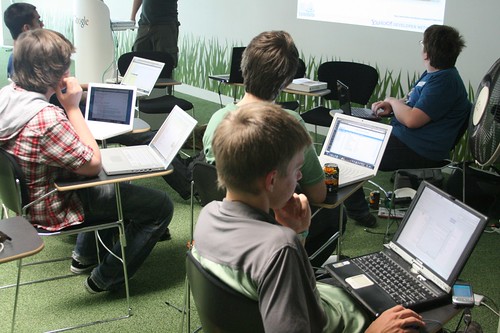
URL: guardian.co.uk/datablog/…infovis (fullscreen version)
There’s been a lot of discussion recently about public spending, amidst a global recession, countries in crisis and the emergency budget.
The Guardian has been following this closely and, when the UK Treasury released “Coins“, its huge database of Government spending, the Guardian invited a small group of programmers and experts to work with them and help unravel the hidden stories buried beneath the data.
Brought in by Rewired State, I worked with others from the Open Knowledge Foundation and MySociety on data visualisations and articles for the Guardian Data Blog. Read More »

I am afraid it is no exaggeration to say that what we saw was a hellish scene. [source]
It has been a sobering experience to see reports of the Bangladesh cyclone – and to watch them flow through the Bangladesh River Journey site we built for BBC World Service. The project’s original aim was to expose the very real presence of climate change in Bangladesh – a low-lying land of myriad rivers – and the cyclone’s arrival seemed shockingly symbolic.
While news of the cyclone competed for airtime in the general media, the World Service maintained a stream of often very personal and touching accounts from the Bangladeshi people. Their Flickr photos and Twitter texts acted as informal media channels, adding an extra dimension to the more formal reporting on the World Service website and radio.
Read More »


